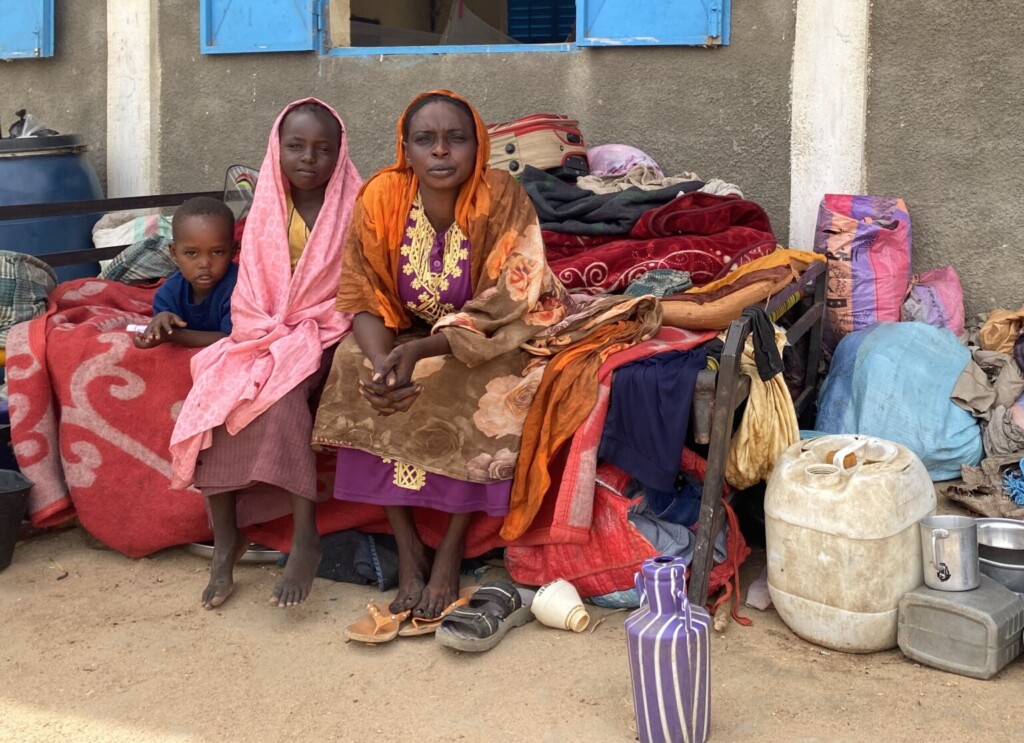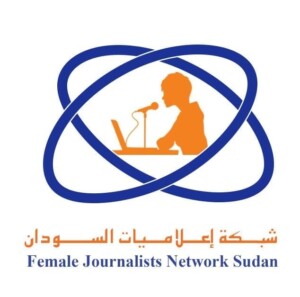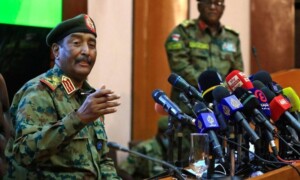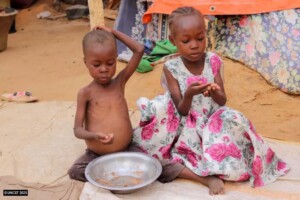WHO: 800k trapped in North Darfur capital

A Darfuri woman and her children who fled to eastern Chad (File photo: MSF)
Approximately 800,000 people are trapped in El Fasher, capital of North Darfur, suffering from a lack of food, water, and medical treatment, the World Health Organisation (WHO) said in a press statement yesterday.
WHO representative in Sudan, Shible Sahbani, says that the intense fighting between the Rapid Support Forces (RSF) and the Sudanese Armed Forces (SAF) has made access to El Fasher, “absolutely impossible,” while these parties continue discussions in Geneva, Switzerland.
Large parts of Sudan are affected by the fighting that began April 15 2023, with hostilities involving heavy weapons and fighter jets spreading from the capital, Khartoum, to other regions and states, including the vast western region of Darfur.
The WHO official told journalists: “Darfur, Kordofan, Khartoum, and El Gezira are almost completely cut off from humanitarian aid due to ongoing fighting. The situation in Darfur is particularly concerning, as those injured in places like El Fasher cannot receive the urgent care they need, with children, pregnant women, and nursing mothers suffering from severe hunger.”
Relief convoy
The statement explains that existing healthcare stocks have been used to supply a few hospitals in El Fasher, but “this is neither sufficient nor sustainable”. The United Nations Office for the Coordination of Humanitarian Affairs (OCHA) continues to negotiate with the warring parties to allow the delivery of relief supplies by truck wherever possible.
“As we speak, we have seven trucks moving from Kordofan towards Darfur … and just yesterday we received approval to transport them to Darfur,” adding that there are also “positive signs” regarding cross-border relief operations from “all warring parties”, says Sahbani.
Relaying firsthand accounts from refugees he met in Chad, Sahbani mentions, “the main reason for leaving Sudan now is hunger and famine… they said it is not insecurity, nor the lack of access to basic services, but because we have nothing to eat there.” One woman who fled from Darfur to Adré near the border with Chad had walked for three days with her children in search of safety, without any food during the entire journey. She told him, “everything we used locally to produce food to eat was taken by the fighters.”
Geneva talks
The humanitarian response in Sudan remains underfunded at only 26 per cent, with Sahbani describing the situation as “one of the worst in the world”. The delivery of humanitarian aid and the protection of civilians are among the key points under discussions in the UN led talks between representatives of SAF and the RSF, beginning last week in Geneva, under the auspices of the UN Secretary-General’s Special Envoy for Sudan, Ramtane Lamamra. UN spokesperson Alessandra Vellucci told journalists in Geneva that the delegations are “engaged”, and that Lamamra and his team held several discussions with each of them throughout the weekend. Sahbani explains, “If we cannot achieve a ceasefire, we can at least secure civilian protection and open humanitarian corridors.”
The WHO also reports that after 15 months of war, Sudan is experiencing the steepest fall in child vaccination globally, with coverage rates falling from 75 per cent in 2022 to 57 per cent in 2023, according to the latest global immunisation estimates for 2023 released by the WHO and UNICEF. Almost 701,000 children in Sudan are not vaccinated at all against killer diseases such as measles and diphtheria.











 and then
and then